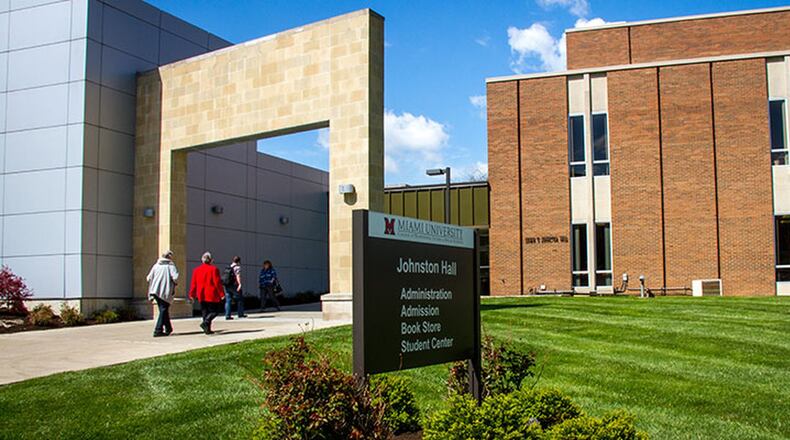In Summer 2019, E-Campus developed an online module for faculty called Keeping Your Courses on Track, www.miamioh.edu/regionals/KeepTeaching. The module assists faculty, who may be off campus attending a conference, to hold a couple of class sessions remotely while they are away and continue to meet their course learning outcomes.
As Covid-19 has swept across the planet, it has necessitated that all face-to-face courses be quickly converted to remote instruction. E-Campus developed a website called Keep Teaching that provides essential information, training and support for faculty who needed to convert courses to remote instruction in a very short time – about 10 days.
Faculty were instructed to have all their courses ready for remote instruction by March 20 using a tool called Canvas, which is the learning management system utilized by all faculty at Miami. Canvas can provide the course syllabus, assignments, quizzes, tests, discussion boards and grades for students enrolled in the course. Today, every course at Miami Regionals is using Canvas for remote delivery of instruction.
Remote delivery allows for work, teaching or learning responsibilities to be completed by an individual at an independent location instead of a centralized place of business. Although the university has moved to temporary remote delivery, it’s important to note it is not the same as accredited and regulated online learning for online programs.
As of Fall 2019, more than 4,000 students have enrolled in at least one online course at Miami University Regionals. More than 600 students are enrolled in online-only courses, and 25% of coursework is completed online for degrees available exclusively at Miami’s Hamilton and Middletown campuses and Voice of America Learning Center in West Chester (bachelor’s and associate degrees). The Regionals E-Campus has an 87% course completion rate.
E-Campus is comprised of instructional designers who develop the courses, educational technology specialists, digital media specialists and student engagement specialists who ensure online students are connected and utilizing the resources and support services available at Miami.
Besides creating the teaching website for faculty, E-Campus also developed a Keep Learning website, www.miamioh.edu/regionals/KeepLearning, for students who may be new to remote learning. The website consists of tips, resources and support for students now taking courses with remote delivery of instruction. Not only is remote instruction new for some faculty, it is also new for students who prefer to be in face-to-face classes.
E-Campus has been providing multiple ways for faculty to receive support via telephone, video conferencing and in-person. This support has been available to aid faculty in converting their courses from face-to-face to remote instruction. E-Campus is providing equipment and training to faculty for video instruction.
“We didn’t do it just to be in compliance,” said Dr. Cathy Bishop-Clark, dean of Miami University Regionals. “We were all-hands-on-deck and motivated because we want to do all we can to help our students succeed. This is the value that drives the work we do.”
Miami University not only moved to remote instruction for all face-to-face classes, it also enacted a remote work plan for all staff. E-Campus, already swamped with getting Regionals faculty ready, also prepared a Keep Working website, www.miamioh.edu/regionals/KeepWorking, to aid staff who are working remotely.
Miami Regionals E-Campus team has gone above and beyond to support faculty, staff and students during this tumultuous time, working long hours and weekends to ensure that learning continues and disruptions are held to a minimum.
These efforts show why Miami University Regionals’ E-Campus continues to be recognized for their leadership and contributions in online learning, most recently being selected as the recipient of the Excelling in Online Learning Course of the Year by the Instructional Technology Council.
About the Author
